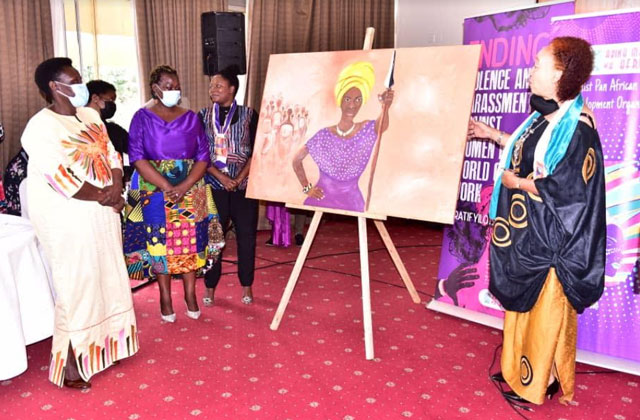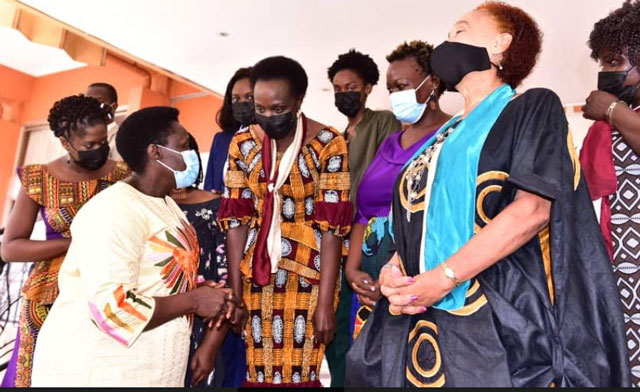
Kampala, Uganda | GODFREY SSALI | There are fewer women occupying leadership positions in Uganda, despite efforts by the government to promote gender equality and the introduction of affirmative action for vulnerable groups particularly women.
This was disclosed during a Regional Women’s Political Leadership Convention from 28th – 29th October 2021 at Serena Hotel organized by Akina Mama wa Afrika in partnership with the African Women’s Development and Communication Network (FEMNET) under the theme; Women’s Political Leadership: Building Forward Transformatively.
The convention was aimed at identifying barriers to female leadership in Africa and to develop strategies to accelerate the advancement of women’s political rights in Africa through re-envisioned, renewed and reframed aspirations and strategies by diverse women political and civic actors.
The Executive Director of Akina Mama wa Afrika, Eunice Musiime says despite constitutional provisions, the international and regional instruments compelling the state to promote gender equality, there is still a long way ahead to achieve gender equality in the civic sphere.
“Women are over 50% of the world population but that is not represented in decision making and political processes hence we recommend 50/50 gender parity,” she said.
“Why should a district comprising four constituencies be represented by one woman yet a male counterpart represents a small area. Our proposal is that each district should be represented by two MPs; one male MPand one female MP,” she added.
Musiime argued that a district woman Member of Parliament covers a large area which takes a toll on her in terms of campaign resources and effective service delivery after ascending to office compared to a constituency Member of Parliament.

For her part, Monica Amoding, the former Kumi district Woman Member of Parliament who doubled as the chairperson of Uganda Women Parliamentary Association (UWOPA) in the 10th Parliament noted that in Uganda, a sexist and patronage-based political culture, combined with gendered economic and household inequalities, are the main barriers to women’s participation in civic and governance processes.
“When you are single, it is an issue to the voters, when you are married, they start asking to whom and where you are married, when you are divorced it also becomes another issue yet men are never asked such questions. ” she said.
While opening the convention, the Vice President of Uganda (Retired) Maj Jessica Alupo who was the chief guest challenged women activists to demand for accountability from elected political leaders regarding gender equality and women’s empowerment commitments.
Alupo remarked that for the last 30 years, Uganda has been resolving the gender imbalance through deliberately emphasizing affirmative action to ensure representation of women at all levels of decision-making.
In the 11th parliament, out of 529 members of parliament there are 179 females against 350 males representing 34%.
While currently ranked at number 37 out of 193 countries in the Inter-Parliamentary Union’s list, this above-average performance belies the stagnation that has choked the move towards real equality in politics.
According to the first Women’s Political Participation (WPP) Africa Barometer 2021, women constitute 24% of the 12,113 parliamentarians in Africa – 25% in the lower houses, and 20% in the upper houses of parliament. Additionally, a key arena of the political structure is the political party yet only 12% of women are represented at political party top leadership positions across the 54 African countries.
Akina Mama wa Afrika (AMwA) is a feminist Pan-African leadership development organization founded in 1985 with headquarters in Kampala, Uganda. Its work is rooted in feminist principles and beliefs guided by the Charter of Feminist Principles for African Feminists which define our leadership development program and movement building activities.
 The Independent Uganda: You get the Truth we Pay the Price
The Independent Uganda: You get the Truth we Pay the Price


